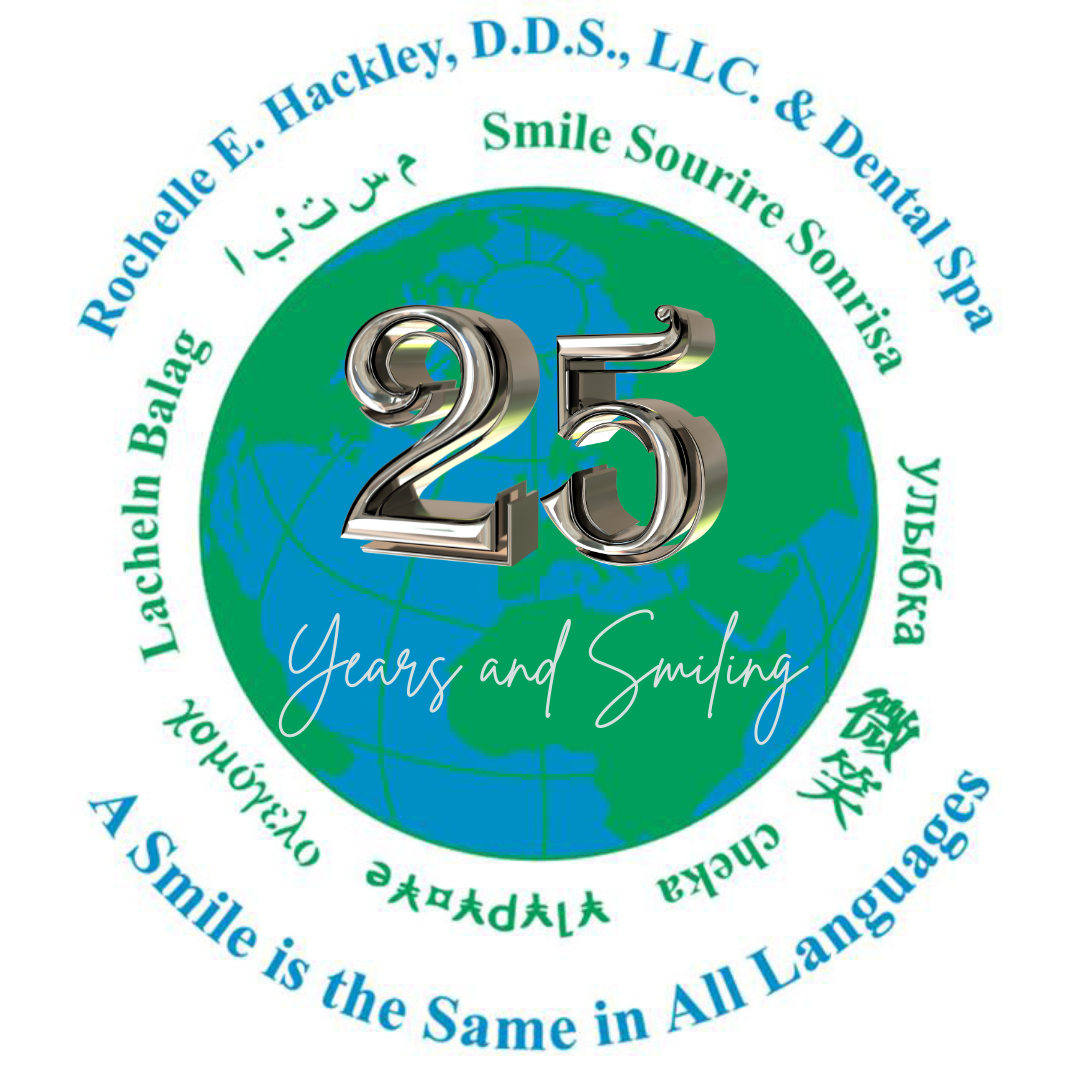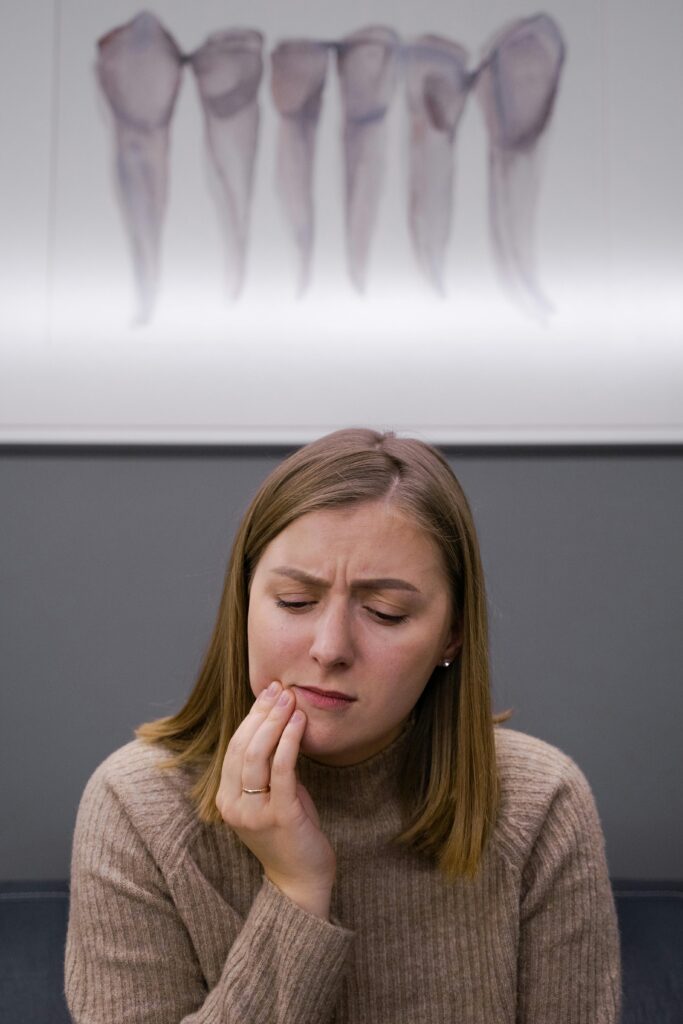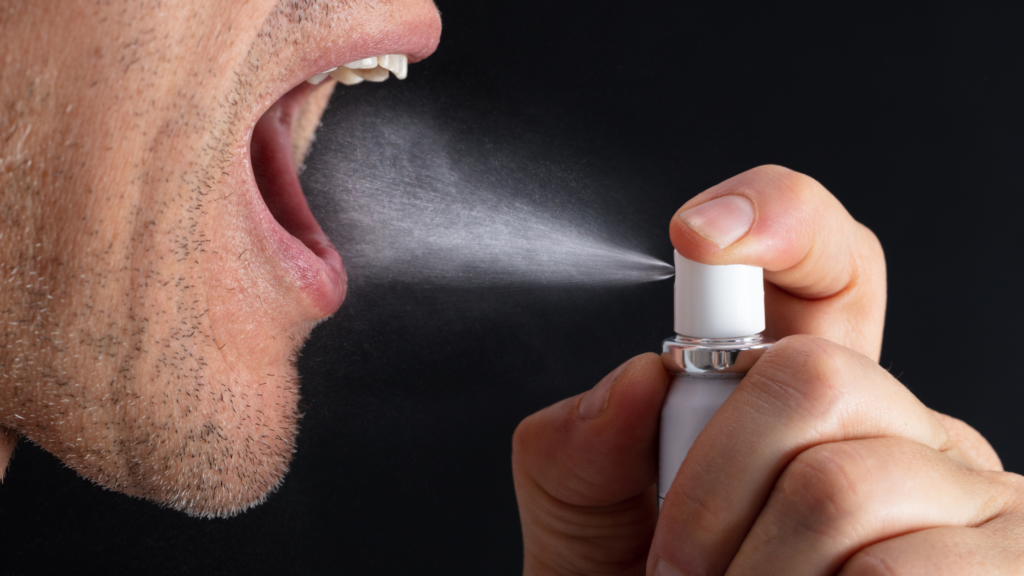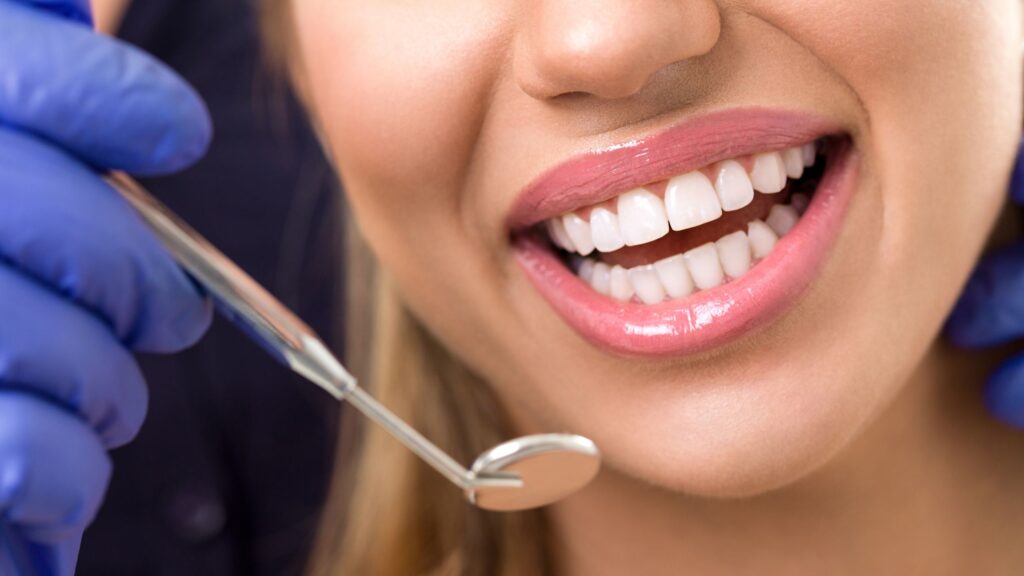As cannabis edibles gain popularity for recreational use, many Maryland residents are beginning to ask an important question: do edibles cause gum recession Maryland patients should be concerned about? According to dental researchers at Columbia University, the answer is yes. Their study, published in the March issue of the Journal of Periodontology, links frequent cannabis use—including marijuana, hashish, and hash oil—with a significantly increased risk of gum disease.
Do Edibles Cause Gum Recession Maryland Residents Should Be Concerned About?
The short answer is yes—especially with regular use. While edibles may not directly irritate the gums the way smoking can, the systemic effects of cannabis can still lead to issues that contribute to periodontal issues over time.
Gum disease, or periodontal disease, is a chronic bacterial infection that affects the tissues supporting your teeth. It begins with gingivitis—marked by swollen or bleeding gums—and can progress to periodontitis. Gum recession is a key indicator of advancing periodontal disease. It often goes unnoticed until it’s too late.
Periodontitis is on the Rise
With rising cannabis use, especially through edibles, many dentists in Maryland are seeing more patients with early and advanced signs of gum recession. Treatment options depend on the stage of gum disease. Early cases can often be reversed with deep cleanings and improved oral hygiene routines. More advanced cases may require scaling and root planing, gum grafts, or other periodontal therapies. Regular dental visits are crucial for early detection and treatment.
Do Edibles Cause Gum Recession Maryland? Contact Us Today!
Even if edibles feel like a “safer” alternative to smoking, they’re not risk-free. If you’re using cannabis regularly—whether for recreation or relief—make your oral health a priority. Schedule an appointment at Hackley DDS to assess your gum health and protect your smile for the long haul.
Red wine may be good for the heart, but it’s not as friendly to your smile. Over time, frequent wine drinkers can notice a dull or purple tint to their teeth. If you’re wondering how to reverse the damage, understanding the wine teeth stain removal dentist cost and your treatment options is a great place to start.
Wine Teeth Stain Removal Dentist Cost: At-Home vs. In-Office Solutions
At-home whitening kits can seem like an affordable fix for wine stains. Options range from whitening strips and trays to LED light systems. These typically cost between $30 to $150. While they can help with surface stains, they don’t penetrate deeply enough to fully erase discoloration. Plus, results can be inconsistent and take weeks to appear.
In contrast, professional services offer dramatic results in just one session. The wine teeth stain removal dentist cost for in-office treatment usually ranges from $300 to $600. Price depends on the severity of the staining and the whitening system used. While the initial cost is higher, the outcome is more predictable, faster, and longer-lasting.
Why Professional Whitening Is Worth It
Though at-home kits are tempting, they can’t match the strength and precision of professional-grade whitening gels. Dr. Hackley tailors treatment based on the specific cause of the stains, making professional care far more effective for stubborn discoloration.
Additionally, in-office whitening minimizes tooth sensitivity and gum irritation, common side effects of over-the-counter products.
Contact Dr. Hackley Today!
With customized care and advanced technology, professional whitening not only lifts wine stains but also restores confidence in your smile. So the next time you raise a glass of red, you can do so knowing your smile is in good hands. For brighter results that last, book a consultation at Hackley DDS and let your smile shine again.
Tooth pain can come on slowly or hit you all at once—but when it’s severe, it can stop everything. It’s more than just an inconvenience. It can interfere with eating, sleeping, and even thinking clearly. If you’re dealing with unbearable tooth pain, what to do might not feel obvious in the moment. That’s where knowing your options, including the difference between a general dentist and an endodontist, really matters.
What Causes Intense Tooth Pain?
Severe tooth pain often means something serious is happening beneath the surface. It could be caused by a deep cavity, a cracked tooth, or gum infection. Most commonly, it’s an infected tooth nerve or abscess. Pain like this doesn’t usually go away on its own. It’s your body’s way of signaling that urgent attention is needed.
Unbearable Tooth Pain: What to Do at Home First
If you can’t get to the dentist right away, there are a few things you can try at home to manage the pain temporarily. Rinse your mouth gently with warm salt water to reduce inflammation and clean the area. Take over-the-counter pain relievers like ibuprofen to ease discomfort. Applying a cold compress to the outside of your cheek can also help reduce swelling and numb the pain. But keep in mind, these are only temporary fixes. The real solution is seeing a dental professional as soon as possible.
When Emergency Dental Care Is Needed
Some signs mean you shouldn’t wait for a regular appointment. If your pain is sharp, throbbing, or radiating to your jaw or ear, it could be a sign of a serious infection. Swelling in your face or neck, fever, or difficulty swallowing are also red flags. These symptoms mean it’s time to call for emergency dental care.
At Hackley DDS, our team offers same-day emergency appointments when possible. During emergency care, we’ll examine your tooth, take X-rays if needed, and work quickly to reduce pain and treat the root cause. Sometimes that means a filling or crown—but in more severe cases, it might mean a root canal.
Unbearable Tooth Pain What to Do: Dentist vs. Endodontist
Not sure who to call first? Many people don’t know the difference between a general dentist and an endodontist. A general dentist handles most routine care—cleanings, fillings, crowns, and some root canals. But when the issue runs deep, your dentist might refer you to an endodontist.
An endodontist specializes in treating problems that involve the inside of the tooth—especially the tooth pulp and nerves. If you need a root canal or treatment for a tooth that has suffered trauma, an endodontist can offer more advanced tools and techniques. For severe cases, seeing an endodontist may lead to faster relief and better outcomes.
Preventing Future Tooth Pain
While not all toothaches are preventable, many are. Regular brushing and flossing, along with twice-yearly dental checkups, are your best line of defense. Limit sugary foods and drinks, wear a mouthguard if you grind your teeth, and don’t ignore small aches—they can become big problems quickly.
If you’ve had a filling or crown come loose, or if a tooth feels more sensitive than usual, call your dentist before it becomes an emergency.
Find Relief with Hackley DDS
Tooth pain doesn’t have to control your day. The team at Hackley DDS is here to provide compassionate care and expert treatment when you need it most. We’re ready to guide you from pain to relief, whether it’s a routine fix or something more complex.
If you’re suffering from unbearable tooth pain, don’t wait another minute—contact us and get the care you deserve.
Sleep apnea is a serious condition that causes interruptions in breathing during sleep. These pauses can lead to poor sleep quality, daytime fatigue, and long-term health complications if left untreated. Fortunately, Hackley DDS offers sleep apnea devices in Potomac that provide a comfortable and effective solution.
How Oral Appliances Help with Sleep Apnea
Unlike bulky face masks or breathing devices, oral appliances are custom-fitted devices that help keep the airway open during sleep. These devices are worn in the mouth, and work by adjusting the position of the jaw or tongue to prevent airway obstruction.
Mandibular Advancement Devices (MADs)
One of the most common sleep apnea devices in Potomac is the Mandibular Advancement Device (MAD). This appliance works by gently shifting the lower jaw forward, which helps keep the airway open and reduces instances of breathing interruptions. MADs are custom-made by a dentist to ensure a comfortable fit and optimal effectiveness.
Tongue-Stabilizing Devices (TSDs)
Another effective option for treating sleep apnea is a Tongue-Stabilizing Device (TSD). Instead of adjusting the jaw, a TSD holds the tongue in a forward position, preventing it from collapsing and blocking the airway during sleep. TSDs are simple to use, non-invasive, and can make a noticeable difference in sleep quality.
Find Sleep Apnea Devices in Potomac
If you struggle with sleep apnea, the team at Hackley DDS can help. We specialize in custom-fitted oral appliances designed to improve airflow and promote restful sleep. With the right device, you can experience relief from sleep apnea symptoms and enjoy better health overall. Don’t let sleep apnea disrupt your life any longer. Contact us today to learn more about your options. Our team will guide you through the process and help you find the best solution for your needs.
Dry mouth, or xerostomia, is a common condition that can lead to discomfort, difficulty speaking or swallowing, and even an increased risk of dental problems. While it may seem like a minor issue, dry mouth can have serious consequences for your oral health. If you’re experiencing persistent symptoms, it’s important to consult a dry mouth dentist near Potomac to get the care you need. Read on to learn more!
What Causes Dry Mouth?
Dry mouth occurs when your salivary glands aren’t producing enough saliva. Saliva helps with many things and prevents infections. Several factors can contribute to dry mouth, including:
- Medication Side Effects: Many medications can reduce saliva production.
- Aging: As we age, the production of saliva may naturally decline.
- Health Conditions: Conditions like diabetes, autoimmune diseases, and sleep apnea can cause or worsen dry mouth.
- Mouth Breathing: Breathing through your mouth can lead to a dry, uncomfortable feeling in the mouth.
Symptoms of Dry Mouth
Common symptoms include a sticky or dry feeling in the mouth, bad breath, difficulty swallowing or speaking, and a dry throat. People with dry mouth are also more susceptible to cavities, gum disease, and oral infections.
When to See a Dentist
If your dry mouth persists, it’s time to seek professional help. A dry mouth dentist near Potomac can assess the underlying causes of your condition and recommend appropriate treatments. We can also provide tips for good oral hygiene to prevent issues associated with dry mouth.
Dry Mouth Dentist near Potomac – Contact Us Today!
Dry mouth is more than just a minor inconvenience—it’s a condition that needs attention to avoid long-term dental problems. If you’re experiencing persistent symptoms, don’t wait! Schedule a consultation with a dry mouth dentist near Potomac to start on the path to relief and improved oral health.
When it comes to keeping your smile healthy and radiant, you may have plenty of questions. Dental care is essential to maintaining not only oral health but overall well-being, and it’s important to be informed. In this blog post, we’ll explore the most common questions about dental care to help you stay on top of your oral hygiene and feel confident during your next dental visit.
How Often Should I Visit the Dentist?
One of the most common questions about dental care is how often you should schedule a checkup. In general, it’s recommended that you visit your dentist every six months for a routine cleaning and examination. However, if you have ongoing dental issues like gum disease or are undergoing treatment, your dentist may suggest more frequent visits to monitor your progress.
What is the Best Way to Brush My Teeth?
Proper brushing technique is crucial for effective dental care. Use a soft-bristled toothbrush and fluoride toothpaste, brushing twice a day—once in the morning and once before bed. Make sure to brush for at least two minutes, using gentle circular motions to clean all surfaces of your teeth. Don’t forget your tongue! Brushing your tongue helps remove bacteria and keeps your breath fresh. Flossing once a day also plays a key role in removing food particles and plaque from between teeth.
What Causes Tooth Sensitivity?
If you’ve ever experienced sharp pain or discomfort while eating or drinking something hot or cold, you’re not alone. Tooth sensitivity is another of the most common questions about dental care patients ask. Sensitivity can be caused by worn enamel, gum recession, cavities, or exposed tooth roots. Using a toothpaste specifically designed for sensitive teeth and avoiding acidic foods can help ease discomfort. However, if sensitivity persists, it’s important to consult with your dentist to rule out more serious issues like tooth decay or gum disease.
How Can I Prevent Cavities?
Preventing cavities is at the heart of good dental hygiene. The best ways to prevent cavities include brushing and flossing regularly, using fluoride toothpaste, and limiting sugary snacks and drinks. Drinking water throughout the day helps rinse away food particles and bacteria. Regular dental cleanings are also vital in catching early signs of decay before they become serious.
What Should I Do if I Have Bad Breath?
Bad breath, or halitosis, is a concern for many people. Poor oral hygiene, gum disease, dry mouth, and certain foods like garlic or onions can cause bad breath. Brushing and flossing regularly, cleaning your tongue, and drinking plenty of water can help reduce bad breath. If it persists, a professional cleaning and evaluation from your dentist may uncover any underlying causes like gum disease or tooth decay.
How Can I Whiten My Teeth?
A bright smile is something many patients desire, and teeth whitening is often a topic of inquiry. While over-the-counter whitening products are widely available, professional whitening treatments offered by your dentist tend to provide better results. These treatments are customized to your needs and are safer for your enamel. Be sure to ask your dentist which whitening options are best for your teeth, especially if you have sensitive teeth or existing dental restorations.
Schedule Your Appointment Today and Get Your Most Common Questions About Dental Care Answered!
We hope these answers help you feel more confident in maintaining your oral health. If you have more questions or want to schedule a cleaning, the team at Hackley DDS is here to assist you. Contact us today to book your next appointment and ensure your smile stays bright and healthy!
You’ve probably heard the saying, “You are what you eat.” This is especially true for your teeth and gums. The starchy or sugary foods we enjoy are also favorites of the bacteria in your mouth, which can lead to tooth decay and gum disease.
The difference between a healthy smile and frequent trips to the dentist largely depends on your diet. Even with a solid oral hygiene routine—brushing twice a day and flossing once daily—keeping your teeth healthy long-term can be challenging.
Which Foods are Best for Teeth and Gum Health?
Some of the top foods for a healthy mouth are fresh fruits and vegetables, thanks to their high nutritional value and natural teeth-cleaning benefits. Calcium-rich foods, such as low-fat or fat-free milk, yogurt, cheese, fortified soy drinks, tofu, canned salmon, almonds, and dark green leafy vegetables, promote strong teeth and bones. Chewing crunchy foods stimulates saliva production, which, along with water, helps wash away plaque-causing bacteria and food particles.
Cheese, Milk, and Yogurt
Cheese is one of the top foods for a healthy mouth for several reasons. It is low in sugar and high in calcium, and contains casein, a protein that helps fortify tooth enamel. The high calcium content supports bone density, while the phosphate in cheese helps balance pH levels in the mouth, preserving tooth enamel. Additionally, chewing cheese increases saliva production, which helps wash away bacteria.
Besides fluoridated water, milk is the best drink for your teeth. It is rich in calcium and other essential nutrients and lowers acid levels in the mouth, helping to fight tooth decay.
Yogurt is also beneficial, as it is packed with calcium and probiotics that protect against cavities, gum disease, and even bad breath.
Water
Water stands out as the healthiest drink available. Our bodies are composed of 60% water, and staying hydrated helps distribute nutrients, eliminate waste, maintain healthy skin, and keep muscles functioning. Drinking water also significantly benefits your teeth, especially if it’s fluoridated. Fluoridated water, known as “nature’s cavity fighter,” helps prevent cavities. Additionally, water washes away food particles and maintains high saliva levels, promoting oral health.
Leafy Greens (Spinach, Lettuce, Kale)
Super healthy leafy greens are rich in calcium, folic acid, and essential vitamins and minerals that benefit your teeth and gums. Crunchy fresh greens in salads and sandwiches also help clean your teeth.
Apples and Pears
Will an apple a day keep the dentist away? Maybe not entirely, but it certainly helps. Eating apples and other hard, fibrous fruits can clean your teeth and increase saliva production, which neutralizes the citric and malic acids left in your mouth. While sugary apple juice can contribute to tooth decay, fresh apples are less likely to cause problems. Chewing the fibrous texture of apples stimulates your gums, reduces cavity-causing bacteria, and increases saliva flow.
Unlike many acidic fruits, raw pears effectively neutralize acids in your mouth that cause decay.
Nuts
Nuts offer numerous health benefits for your teeth, being rich in essential elements like calcium and phosphorus. Almonds, Brazil nuts, and cashews are particularly beneficial as they help fight bacteria that cause tooth decay. Peanuts are a great source of calcium and vitamin D, while almonds provide significant amounts of calcium, supporting teeth and gums. Cashews stimulate saliva production, and walnuts are packed with fiber, folic acid, iron, thiamine, magnesium, niacin, vitamin E, vitamin B6, potassium, and zinc.
Top Foods for a Healthy Mouth
A diet that promotes good oral health involves not just what you eat, but also when and how you eat. One effective way to protect your teeth is by eating raw foods at the end of meals. These foods help clean teeth, massage gums, and stimulate saliva production, which washes away any remaining food particles. Dr. Hackley and our knowledgeable and compassionate staff are dedicated to helping you create and maintain a smile you love. Contact us today to schedule an appointment!
Searching for a pregnancy dentist near me in Rockville? We can help. Dental health during pregnancy can be stressful. The hormonal changes associated with pregnancy can lead to issues with oral health. A good prenatal dentist understands the importance of oral health during pregnancy. Hackley DDS proudly offers prenatal dentistry care in Rockville and the surrounding area. Our compassionate and skilled team are here to help you.
Common Dental Conditions During Pregnancy
Pregnant women have to pay closer attention to all aspects of their health, including dental health. For some women, pregnancy increases the production of plaque. This sudden increase may lead to gum disease, gingivitis, and tooth decay.
Often these issues are related to hormone changes. However, it may be caused by increased cravings for sugary goods, gums problems, and vomiting.
Gingivitis During Pregnancy
Pregnant women often experience cavities, periodontal disease, gingivitis, tooth erosion and more. Gingivitis is particularly common during pregnancy. It affects between 60-75% of pregnant women. Symptoms of gingivitis include bleeding gums, redness, tenderness and swelling. It’s crucial to treat gingivitis as soon as possible. If it is left untreated, it can progress into a more severe form of gum disease known as periodontitis.
Why Dental Care is Important
Expectant mothers should pay close attention to their dental health since pregnancy increases the risk of complications with teeth and gums. These complications can lead to periodontitis, which increases the risk of premature birth and low birth weight. Periodontist is also associated with various systemic health problems. These could further endanger the mother and unborn baby.
Additionally, mothers with preexisting conditions are more susceptible to dental issues.
Dental Health During Pregnancy
Pregnant mothers are often prone to neglect their dental health due to high levels of fatigue and frequent snacking. Additionally, morning sickness can wear away tooth enamel while hormone changes can lead to gingivitis. While it may seem like a small thing, oral health has a direct impact on the unborn baby’s health.
Excess bacteria in the mouth can enter the bloodstream and make its way to uterus. This can cause premature labor. Therefore, tis crucial that pregnant women brush twice a day, floss nightly, and keep up with regular dental appointment.
Pregnancy Dentist Near Me Rockville
Pregnancy is a beautiful, but stressful time in a woman’s life. We understand that you have a lot going on, but it’s important that you make time for your oral health as well. Contact Hackley DDS today to schedule an appointment with a pregnancy dentist near me in Rockville.
Maintaining oral health is vital for overall well-being. Beyond fostering a radiant smile, good oral hygiene plays a pivotal role in reducing the risk of infections, heart disease, and even cancer, making it an integral aspect of both your and your family’s health and wellness. While you might instinctively consider a pediatric dentist as the ideal choice for your children’s dental care, a family dentist in Rockville MD is equally equipped to provide exceptional oral health services. One of the primary advantages of choosing a family dentist is the convenience it offers. By making just one phone call, you can schedule appointments for the entire family, streamlining the process and minimizing logistical hassles associated with visiting multiple dental practitioners. Let’s delve into more benefits of family dentistry in Rockville MD.
Family Dentistry in Rockville MD
A family dentist is a dental professional who provides care to patients spanning all age groups, ranging from children to adults. Their services encompass a comprehensive range of treatments, including dental checkups, cleanings, examinations, fillings, x-rays, fluoride treatments, sealants, and more.
Eliminating Dental Anxiety
Both dental phobia and dental anxiety can lead to the postponement or avoidance of dental care. If any of your family members experience these conditions, scheduling dental checkups together as a family can be beneficial.
Children, in particular, may develop dental anxiety early on, and having a family dentist can aid in overcoming it. When children observe their parents attending checkups or receiving treatment, they gain confidence and become more at ease with the dental experience. Children often mirror the behaviors and attitudes of their parents. By demonstrating the importance of regular dental visits, you establish a lasting impression.
The significant advantage of attending appointments with a family dentist together is that it helps children overcome their fears early on, fostering a lifelong comfort with dental visits.
A Family Dentist is Convenient
The convenience of having a family dentist for your entire household is undeniable. By scheduling one appointment for multiple individuals or the entire family, you streamline your life. Gone are the days of needing to take time off work on various occasions for separate appointments—one for yourself, another for your children at the pediatric dentist, and yet another for your teenagers elsewhere.
Family Dentists Know Your Dental History

One of the key benefits of lifelong family dentistry is the familiarity your dentist will have with your family’s dental history. If there have been past dental conditions, surgeries, allergies, or sensitivities, your dentist will have comprehensive records of these. This enables them to tailor suitable treatments based on your family’s specific dental needs and medical history.
Having a Family Dentist Means a Lasting Relationship
Establishing trust between you and your dentist is essential for several reasons. With trust in place, communication becomes effortless, allowing you to share information openly and honestly. When your dentist is fully informed, they can accurately diagnose symptoms, ensuring that you and your family members receive the appropriate treatment.
Regular and Consistent Services
To uphold the oral health of you and your family members, it’s recommended to schedule visits to your family dentist at least twice a year for checkups and cleanings. With a family dentist, you’ll feel assured about attending these appointments, reducing the likelihood of missing any.
Preventative Care
Family dentists are experts in a wide range of dental fields catering to individuals of all age groups. Since children’s teeth are still developing, they require specialized care. Family dentists provide guidance on preventive measures to maintain optimal dental health for children. Additionally, it’s important to act early if one of your children requires teeth alignment. In fact, it is more beneficial in children compared to adults.
Emergency Dental Services
In times of urgent dental care needs, having a trusted dentist readily available is invaluable. You can rely on them to provide immediate assistance to any member of your family. Instead of searching for an emergency dentist each time a situation arises, you can simply reach out to your family dentist and schedule an immediate appointment.
Family Dentist in Rockville MD
Dr. Hackley and our knowledgeable and compassionate staff are dedicated to helping you create and maintain a smile you love. Contact us today to schedule an appointment!
What causes bad breath? If you, or a loved one has bad breath that just won’t go away, you may be dealing with halitosis. So, what causes it and how can you treat it? Stick around to find out.
What is Halitosis?
Halitosis, or bad breath, is typically caused by sulfur-producing bacteria. These bacteria live on the surface of the tongue and in the throat. Sometimes, they start to break down protein at a very fast rate, creating odorous volatile sulfur compounds (VSC).
Halitosis is not contagious. Around 2.4% of adults suffer from bad breath, but fortunately, there are ways to treat this condition. But first, let’s talk about what causes it.
What causes bad breath?

Other than the sulfur-producing bacteria, the other major causes of halitosis are:
- Dry mouth- caused by alcohol, stress, medications, and medical conditions
- Dental factors like periodontitis or poor oral hygiene
- Smoking, which starves the mouth of oxygen.
Other less common causes include:
- Acid and bile reflux
- Post-nasal discharge
- Kidney failure, various carcinomas, metabolic dysfunctions, and biochemical disorders.
- Certain foods like onions, garlic, and cauliflower. However, this is temporary.
Symptoms of Halitosis
Symptoms include:
- A white coating on the tongue, especially at the back
- Build up around the teeth
- Dry mouth
- Morning bad breath
- Constant sour, bitter metallic taste
- Post-nasal drip, or mucous
- Thick saliva and a constant need to clear your throat
Treatments for Bad Breath
There is no one treatment, it will depend on what is causing your bad breath. A good first step is to make sure you are well hydrated and maintain good oral hygiene. Additionally, some mouthwashes, lozenges and toothpastes can help fight bad breath.
Another important action is to clean the tongue. Gentle, but effective tongue cleaning can help fight bacteria growth. Many tongue brushes and scrapers are available. Brush gently from the back to the front of the tongue and pay special attention to the hard-to-reach areas, as those will smell the worst.
When to Get Help for Bad Breath
If at home treatments aren’t working, it may be time to speak to your dentist about your bad breath. To schedule an appointment, please contact Hackley DDS today.











